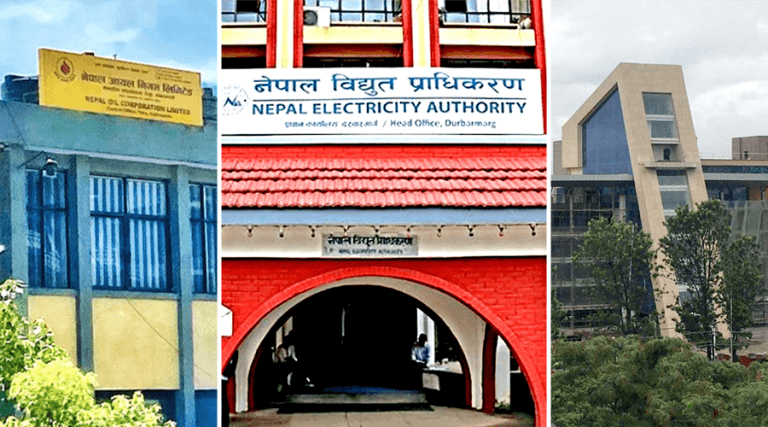Government Approves Policy to Improve Governance and Performance of Public Enterprises
Author
NEPSE TRADING

The Government of Nepal has approved the Public Enterprises Management and Governance Policy, 2082, aimed at enhancing the efficiency, transparency, and accountability of state-owned enterprises. The policy, endorsed by the Cabinet meeting on Asoj 12, envisions transforming public enterprises into competitive, professional, autonomous, and results-oriented institutions in the long run.
According to the Ministry of Finance, there are currently 45 public enterprises operating in Nepal — 20 fully government-owned and 25 with partial government investment. Of these, 28 are in profit while 15 are incurring losses. In FY 2080/81, the government invested a total of Rs 703.93 billion in these enterprises — including Rs 364.86 billion in equity and Rs 339.07 billion as loans. However, the return on investment (ROI) has declined from 3.8% in FY 2079/80 to just 2.4% in the current fiscal year. Loss-making enterprises collectively recorded a deficit of Rs 3.63 billion, while the profits of profitable institutions dropped by 11.5% year-on-year.
The policy identifies management inefficiency, political interference, weak internal control, excessive administrative costs, and low competitiveness as the main reasons behind the poor financial performance of public enterprises. To address these issues, the government plans to separate regulatory and operational functions, ensuring that policymaking bodies do not directly interfere in operations.
Under the new policy, all public enterprises must publish annual and quarterly reports, and performance agreements will be signed between executive heads and boards of directors. Administrative expenses will be capped at 20% of total expenditure, and all institutions must prepare financial statements in line with the Nepal Financial Reporting Standards (NFRS).
The policy also mandates stronger internal control systems, risk management mechanisms, and regular monitoring and evaluation frameworks. Moreover, all public enterprises will be required to implement a digital accounting system, with audit and internal audit reports to be made publicly available.
Officials at the Ministry of Finance stated that the policy’s implementation is expected to enhance transparency, financial discipline, and accountability in public enterprises. “Once implemented, service delivery will become more effective and returns on government investments will improve,” said one official.
The government also plans to develop a performance evaluation system and introduce special reform programs for underperforming enterprises. The overarching goal is to make Nepal’s public enterprises autonomous, efficient, and financially sustainable in the long term. The Ministry confirmed that a detailed action plan has already been drafted and the policy will be implemented gradually from the next fiscal year.



